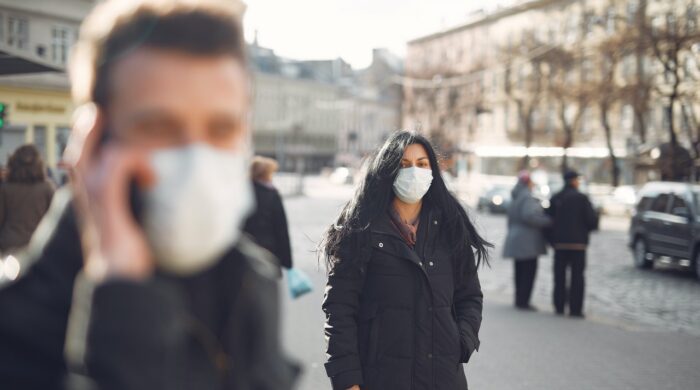Originally published July 2020
Our 24/7 news cycle can be overwhelming, but it’s still important to know how to stay safe while the pandemic remains a threat to our health. With our state slowly beginning to reopen, we’ve collected information from the CDC to help navigate what’s new and what habits we should continue until a COVID-19 vaccine becomes readily available.
Cleaning Your Home
In recent months, you may have felt like a professional housekeeper, learning how to best clean your space to prevent coronavirus. The good news is that you can take that newfound knowledge and use it to maintain a certain level of protection against COVID-19 as we carefully begin to return to normal life.
Regular Routine Cleaning and Disinfecting
Many of your surfaces, such as bookcases and chairs, and most outdoor furniture, will just need a regular cleaning with soap and water. You should still be vigilant about attending to them, but only certain areas, that frequently come into contact with hands, need to also be disinfected with a stronger cleaning solution.
List of Spaces to Routinely Clean
The most important areas to keep disinfected are:
- Lightswitches
- Doorknobs
- Handles on cupboards
- Faucets and sinks
- Desks
- Countertops
- Telephones
- Remote controls
- Keyboards
- Toilets
- Touchscreens/tablets
You’ll also want to make sure you wash or sanitize your hands after using anything in public that others have touched such as gas pump handles, ATM keypads and touchscreen kiosks.
EPA-approved Disinfectants For COVID-19
So, what are the best coronavirus disinfectants to use on the surfaces mentioned above? The Environmental Protection Agency (EPA) has a list of approved disinfectants. View the list here.
Safe Behavioral Practices
While we wait for a vaccine, it’s important to remember that we’re not out of the woods when it comes to possibly catching or spreading the coronavirus, even if we don’t suffer from any of its symptoms. We still have to keep the curve flattened to protect ourselves and others.
Below are a list of ways we can all work together to remain safe:
Social Distancing
Just because stores are re-opening and many of us are getting back to work does not mean we should be in close proximity to anyone outside of our home just yet. Practicing the 6-feet rule of distance between others, especially indoors, is a very easy way to help prevent the spread of coronavirus.
Hand Washing
As we heard in the earliest days of the virus entering our region, one of our best defenses against the coronavirus remains the frequent, thorough washing of hands. For how-to videos, scientific data and how to teach kids to properly wash their hands, visit this page on the CDC website.
Mask Wearing
A very small sacrifice to make when you do need to go out-and-about is to wear a mask anytime you’re around other people. The importance of this is explained in the CDC guidelines for wearing a face covering, which can be found here.
Staying Home When Sick
This may seem like common sense, but many feel pressured to show up for work or other obligations even if they’re under the weather, and in today’s world, that’s just not safe. Even if you suspect you may just have a cold and not the virus, stay home. You giving someone else who is immune-compromised a common cold could weaken them and make them more vulnerable to the virus, even if you recover swiftly.
Western Washington Medical Group COVID Update
Here at Western Washington Medical Group, we’ve prepared a helpful one-page document to answer common questions about modifications to our practice during the pandemic. View PDF document.
